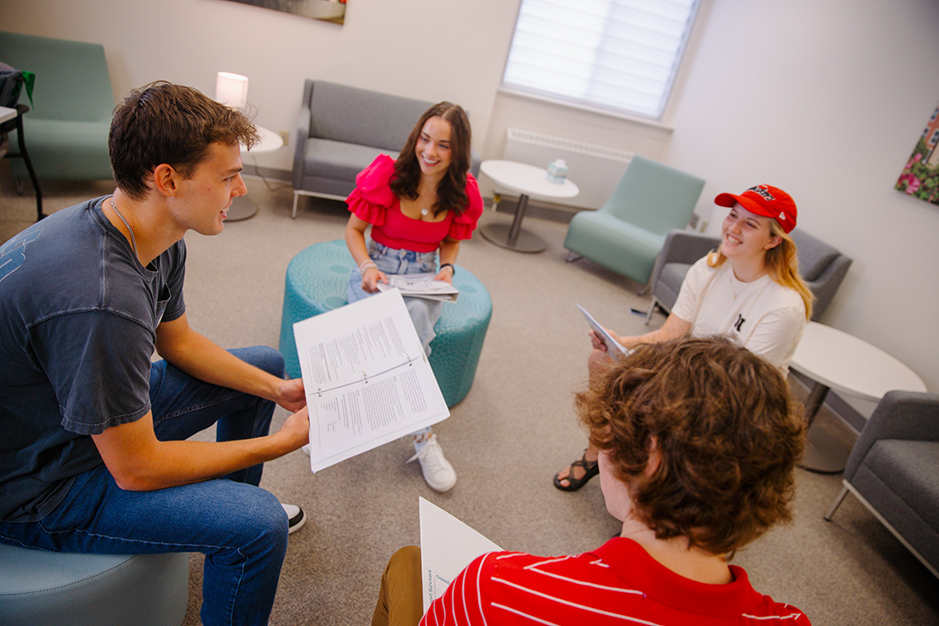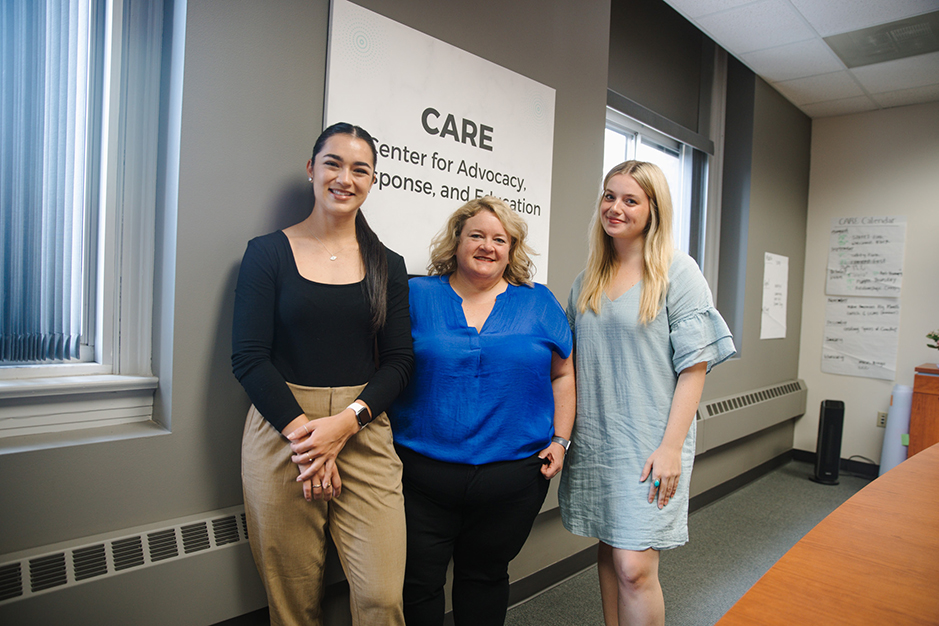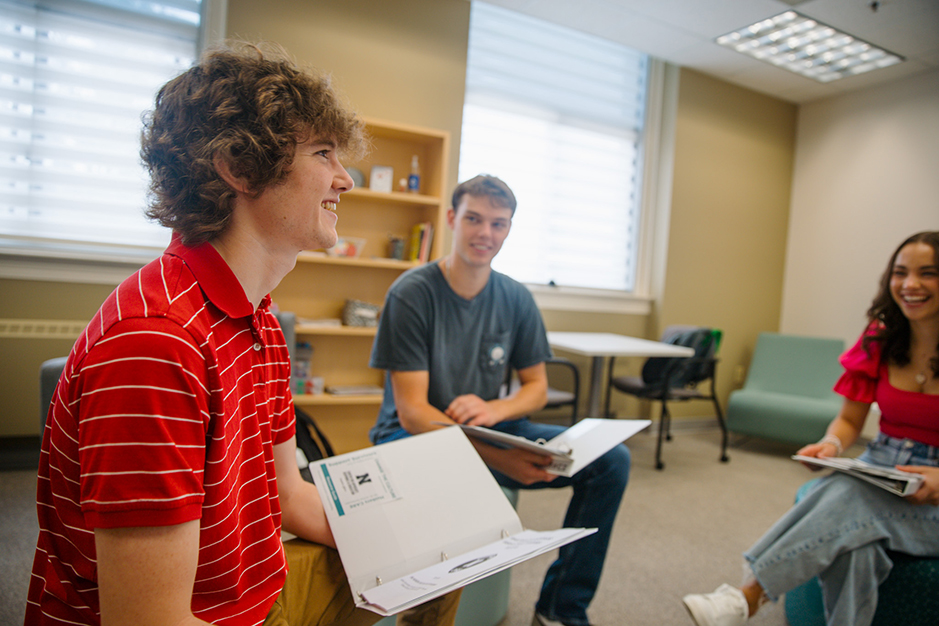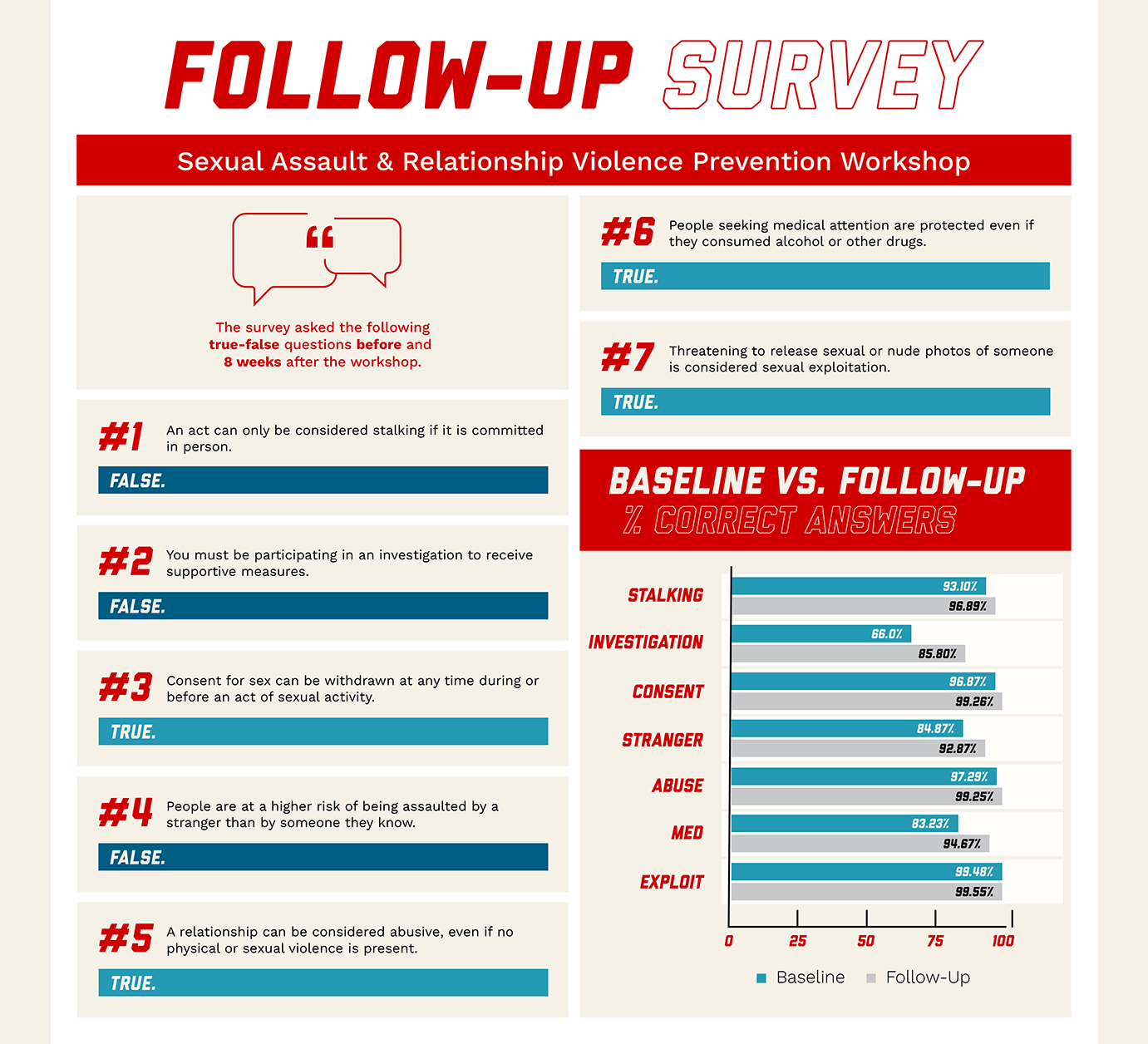
In more than 130 workshops in residence halls through mid-October, about 2,000 University of Nebraska–Lincoln students are learning from fellow students how to combat sexual assault and relationship violence on campus.
This is year two for the Sexual Assault and Relationship Violence Prevention workshops, a peer education effort established by the university’s Center for Advocacy, Response and Education as part of a campus-wide commitment to improve the university’s response to sexual misconduct.
Melissa Wilkerson, director of CARE, and Abbey Ragain, prevention program coordinator, said students have responded positively to the 90-minute sessions.
“They are helping students have a better understanding of sexual assault and relationship violence,” Wilkerson said. “Students are learning how to help others who have experienced sexual assault or relationship violence, and they are learning where to seek help if sexual assault or relationship violence happens to them or someone they know.”
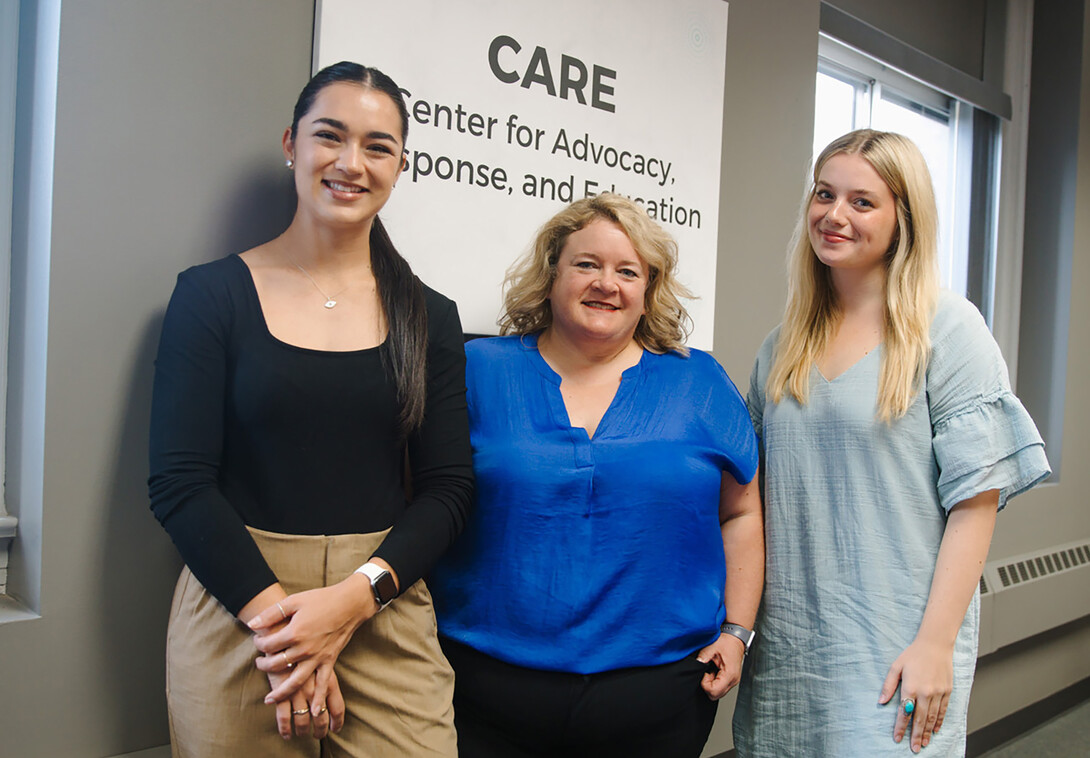
In post-workshop surveys taken last year, 92% of participants said they were confident that they knew where to go for help in response to sexual violence.
On college campuses across the United States, the fall semester is often described as the “red zone,” a time when new students, in particular, are most vulnerable to sexual violence. Because of that trend, first-year students living in the residence halls are top priority in Nebraska’s education campaign.
This year, 54 students were hired as peer educators, up from 32 during the 2022-23 academic year. Peer educators, who work in teams of three at each SARV workshop, received 30 hours of training in sessions held twice weekly during the first three weeks of the semester. Survivor Support Advocate Jenessa Jarvis was instrumental in developing and launching the program in 2022.
About 1,800 students took part in the program last year. A pair of surveys taken immediately before and then eight weeks after last year’s sessions confirm that participating students gained more awareness of sexual assault and relationship violence and more familiarity with university sexual misconduct policies, prevention programs and support resources.
In fact, after the workshops, a higher proportion of students said they would be likely or very likely to intervene on behalf of someone who was being mistreated.
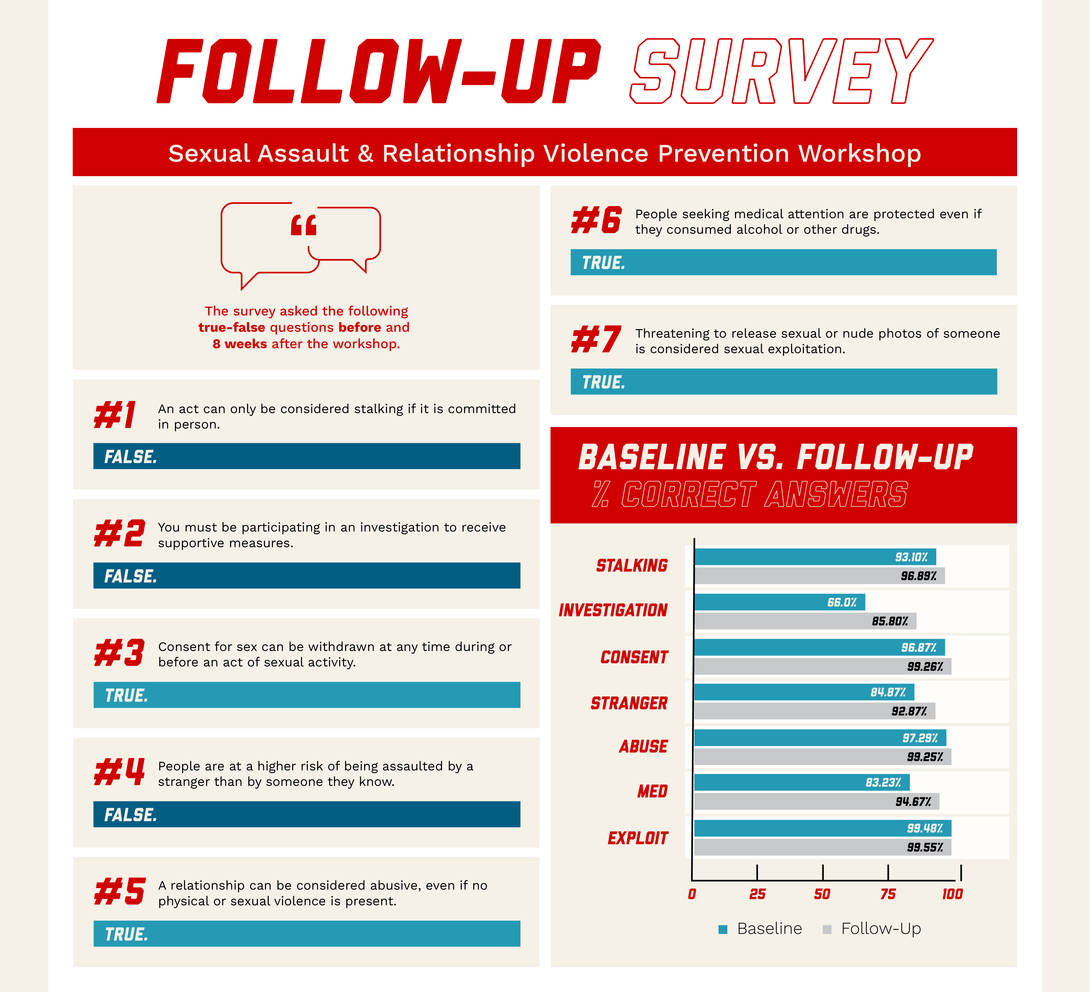
Anonymous feedback offered by students in the follow-up survey also indicated a positive response.
“Absolutely loved how inclusive it was, as well as the diversity of problems discussed and brought up,” one student wrote.
Returning peer educators say students this year seem more interested and engaged during the sessions.
Lydia Storm, a senior biochemistry major and member of the Gamma Phi Beta sorority, said she eagerly joined last year’s peer educator cohort and was excited to return to the role for the 2023-24 academic year.
“I felt passionate about making campus safer for everyone,” she said. “As college-age students, we’re trying to figure out healthy relationships – we don’t necessarily know what that looks like.”
The workshops, which follow a script, describe five to six scenarios that might involve nonconsensual sexual activity, with opportunities for participants to join in the discussion.
Second-year educator Kaitlyn Richards is a senior double major in environmental studies and fisheries and wildlife. She said the peer-to-peer nature of the workshops is a crucial element.
Richards is active in other programs that provide emotional and other support to students, such as the REACH suicide prevention program through Big Red Resilience and peer mentorship with the Prism learning community for LGBT students and their allies.
“I know a lot of people, including myself, are intimidated during presentations from people who are much older than me, or much wiser and more experienced,” Richards said. “With peers, it’s more of a conversation. And just seeing other students around their age caring about the issue – it lights a spark for them to care.”
Trent Rood, a senior psychology major from Los Angeles, and James Jura, a junior biochemistry major from St. Joseph, Missouri, are among seven male peer educators. They said it’s important for men to be involved in the workshops.
“It’s a big misconception to dismiss sexual assault as a women’s issue,” Jura said.
The peer-led workshops are in addition to online sexual misconduct prevention and response training required for all staff, students and faculty through Institutional Equity and Compliance, which oversees the university’s compliance with federal campus safety regulations through Title IX, the Clery Act and the Violence Against Women Act.
CARE’s goal is for all Husker students to receive in-person peer-led sexual misconduct training, as specified in Executive Memorandum 44, signed by NU President Ted Carter in September 2021.
CARE staff members are taking a stairstep approach to expand the peer-led training across the entire student body. Along with the residence hall workshops, nearly 30 more sessions are being scheduled for fraternities, sororities, registered student organizations and other groups. Open workshops also are scheduled in Louise Pound Hall and the Nebraska Union.
Bystander intervention workshops are being launched this year as a pilot program. Eleven students who were peer educators last year have signed up to become bystander intervention trainers.
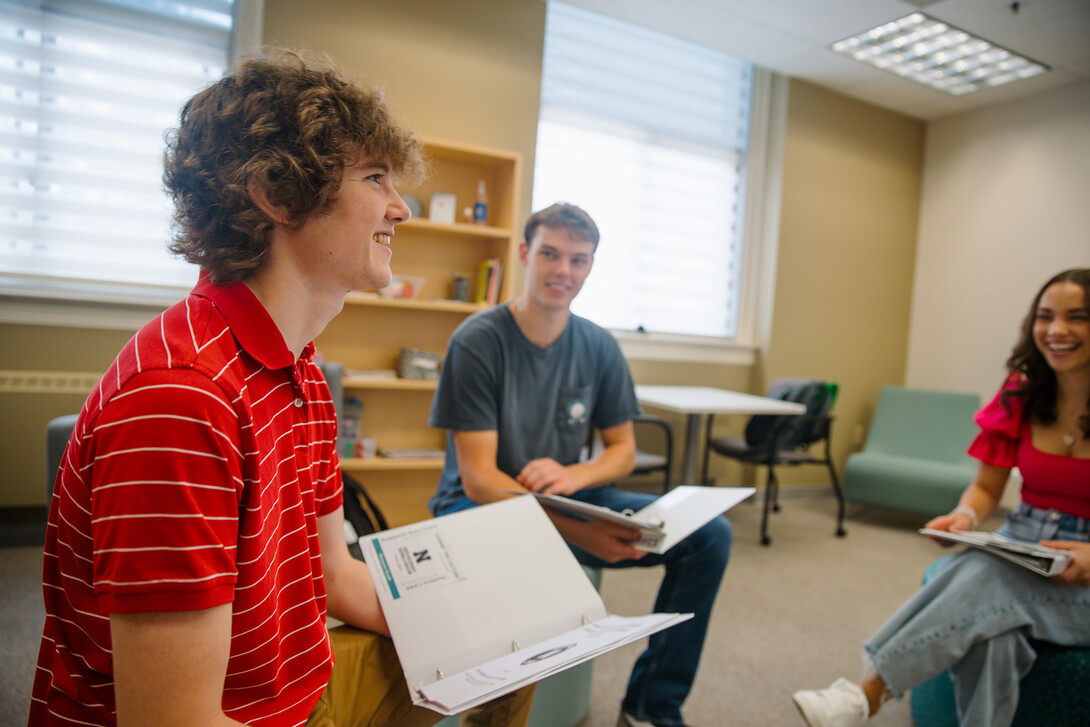
Ragain said the two workshops eventually will be combined into a training series, with the SARV overview provided to first-year students and bystander intervention given to second-year students.
Wilkerson and Ragain point to signs that the workshops are changing campus culture. More students are coming to the CARE office to seek help or volunteer.
CARE itself has grown. Wilkerson was the sole survivor support advocate when the CARE program was established in 2018. CARE now has four total employees, including two support advocates, Wilkerson and Jarvis, and plans to hire a third. The program is housed in newly renovated offices near the heart of City Campus at 211 Louise Pound Hall.
CARE educational activities attract more attendance, such as the standing-room-only crowd that turned out for CARE’s “Palentine” party in February. The party featured a Bingo game where players identify popular music lyrics that depict problematic relationship behavior.
It was a CARE event – the “What Were You Wearing?” exhibit held at Neihardt Hall in April 2022 – that inspired Jura to become a peer educator. The exhibit displays clothing items worn by survivors when they were assaulted and challenges victim-blaming assumptions. Jura attended the exhibit with his fraternity, Sigma Phi Epsilon.
“It was really powerful,” Jura said. “The clothes were so normal and so close to what you see every day, it made you realize how close it is to you and how personal it is.”
Rood said students wrestle with difficult topics during the workshops. He tries to make the sessions engaging and memorable, sometimes by poking fun at himself.
“No one really wants to be in a workshop like this,” he said. “It’s uncomfortable. There’s a lot of statistics that scare them – they scare me. But knowledge is power. People in the 18-to-24 age group are most at risk for experiencing intimate partner violence. These students are freshmen, and they don’t know about that risk.”
